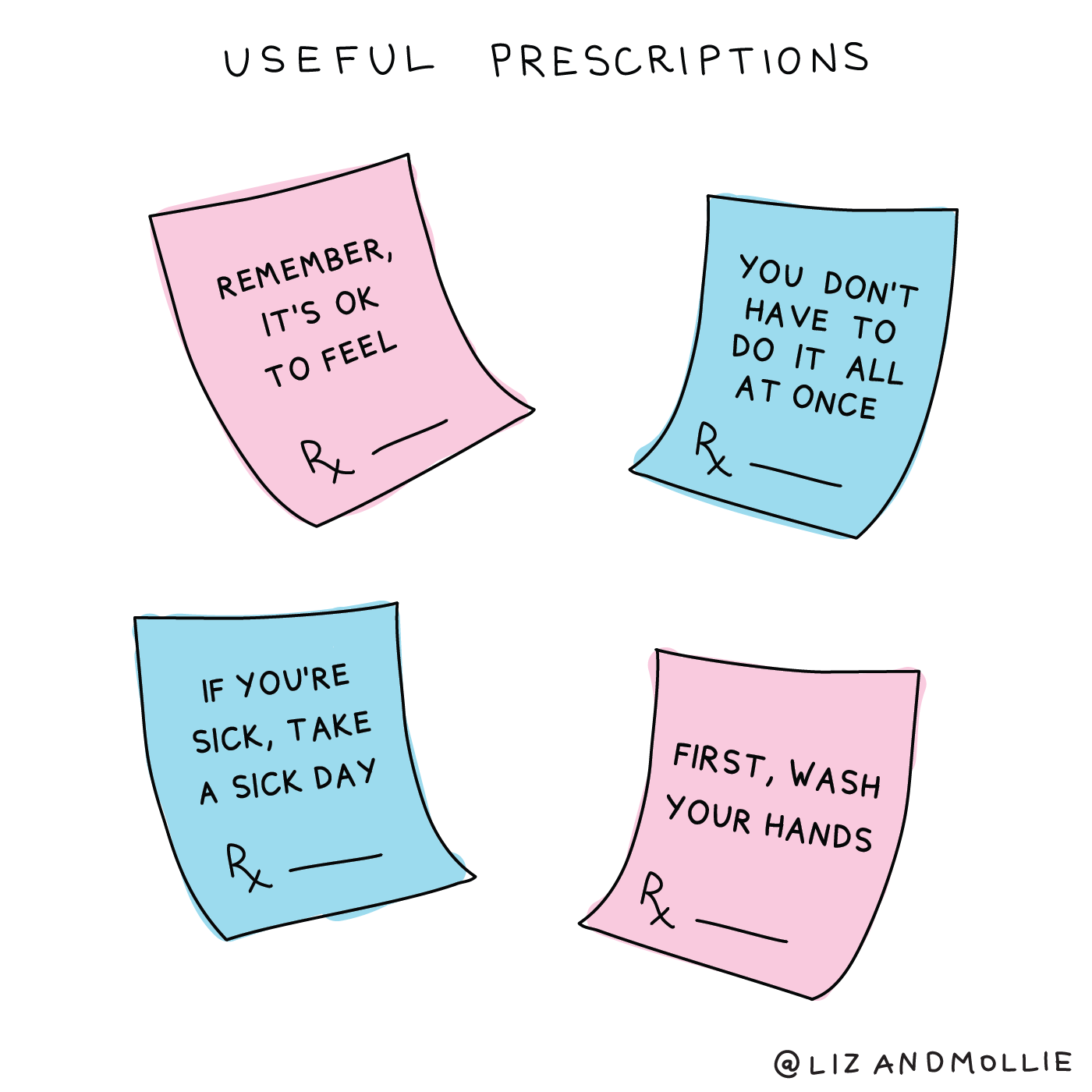As COVID-19 continues to spread around the globe, more and more of us are starting to work from home (Liz, who lives in the Bay, has been remote since last week). Among a growing number of others, Google, Microsoft, Trader Joe's, Gap, and United have all taken action to address concerns, either by recommending or requiring employees to work from home, offering more paid sick leave, or maintaining wages in spite of reduced hours.
It's important to us that we do what we can to help. Working from home can be isolating, and living with uncertainty is stressful. Below, we've pulled together our top tips for both.
Before we dive in, we want to note that not all of us can do our jobs from home. For the sake of everyone heading to work each day, please wash your hands regularly and carefully, practice social distancing, and try as much as you can to stop touching your face. Check out more tips from WHO and the CDC. We also liked this list of recommendations from The Atlantic, and the guide for workplaces/HR teams on how to communicate about and plan for COVID-19 put together by Life Labs.
1. Emotionally proofread your messages. Always re-read what you’ve written before hitting send to make sure your message is clear and conveys the intended tone. Sending “Let’s talk.” when you mean “These are good suggestions, let’s discuss how to work them into the draft” will make the recipient unnecessarily anxious. If you are worried about how your tone will come across, pick up the phone. Your colleague (who may also be working from home) might be glad for the chance to talk.
2. Be mindful of time zones. To help people in all time zones feel included, strive to delay decision-making until you’ve heard from everyone who should be involved. And if you occasionally need to ask a colleague to join a meeting outside of their normal work hours, we recommend skipping video. It’s much easier to join if you're not expected to be camera-ready.
3. Schedule time for serendipitous collaboration. When we work remotely, we miss out on all the impromptu moments with our colleagues that lead to good ideas: chatting before and after meetings, catching up in the kitchen or hallways, and stopping by each others' desks. When meeting via phone or videoconference, schedule time for informal conversation at the beginning and end of meetings.
4. Make room for mini-breaks. Stepping away from your desk for even five minutes helps you relax—and stay focused. Danish students who were given a short break before taking a test got significantly higher scores than their peers who didn’t get any time to relax. Mollie has been using the Time Out app (for Macs) which reminds her to take periodic breaks to stretch, walk around, or change positions at her desk.
5. Set up an after-work ritual. It's easy to overwork when you don't leave a physical office at a specific time each day, making it extra important to keep healthy boundaries. Your brain will benefit from a signal that tells it, “Work is over!” Some ideas: meditate, listen to music, read a magazine, or lift weights (some studies show weight training boosts your mood more than cardio). Cal Newport, author of Deep Work, ends each day by transcribing any loose notes into a master task list, shutting his computer, and then saying the phrase, “Schedule shutdown, complete.” “Here’s my rule,” he writes. “After I’ve uttered the magic phrase, if a work-related worry pops to mind, I always answer it with the following thought process: I said the termination phrase.”
6. Put time on your calendar to exercise. Commit to getting some physical activity by blocking off time to work out on your calendar. Need some working-out-from-home ideas? Try a 7 minute workout, 17 Desk Stretches That'll (Almost) Replace Going to the Gym, or just put on your favorite song and dance it out. Even better, make it a virtual group activity. Jump on a video call with a friend, pick a fitness YouTube video, and get your sweat on together.
7. Check in on each other. This can be done by setting up virtual lunches, teatimes, or what Buffer terms “pair calls”. For pair calls, Buffer employees opt in to be randomly paired with someone else at the company once a week. Calls have no set agenda; coworkers get to know each other in pairs by talking about their families, hobbies, and favorite shows.
These are uncertain times, in which it's more important than ever for us to support each other. If you have additional ideas or resources, please share them with us at hello@lizandmollie.com.

